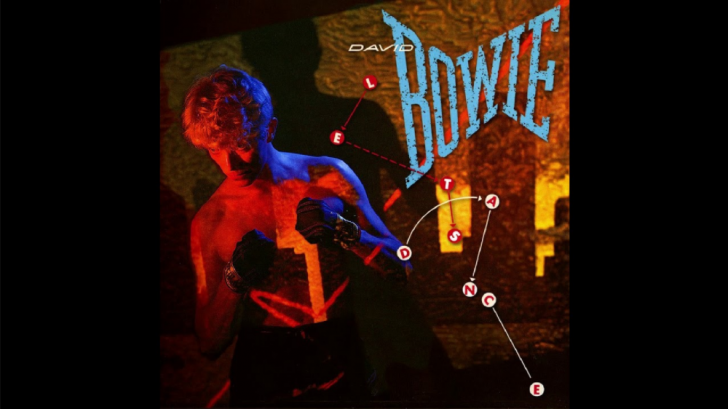Looking back at previous decades is always controversial, and even worse when it comes to lists. Below are the 7 Classic Rock Albums In The 80s’ You Hated But Now Love:
Nirvana – Bleach
When you talk about Bleach, you talk about the germ, always in the shadow of the polished Nevermind. Everything is still raw and raw here; It comes out as it does, but it does Stories about the speed of the recording and the lyrics made the day before are known. Bleach starts with urgency, taking everything out: anger, anguish, and disappointment. There’s chaos, noise, some great tunes, and promises of what’s to come. A scramble of influences marked by punk, hard rock, metal, and pop. Cobain’s distinctive charisma and versatility hint at some brilliant songs, like “About a Girl,” “School,” or “Blew,” a sensibility that stands out above the rest of the effervescent grunge scene.
David Bowie – Let’s Dance
In the history of music it is not easy to find an album that is excellent from beginning to end and that, at the same time, half of it is pure hits, but if there is someone who can achieve that, it is David Bowie himself. For Let’s Dance, Bowie at the last minute scrapped his creative partner of the past decade, Tony Visconti, and decided to call in Chic’s legendary Nile Rodgers to co-produce the record. Needless to say, the result was more than positive, Rodgers’ involvement and influence brought a breath of fresh air to Bowie’s sound and in a way helped him reinvent himself once again. As we mentioned earlier, the album is packed with hits and probably some of the biggest of his career: “Modern Love”, “Let’s Dance”, “Cat People” and “China Girl”, the latter a cover of Iggy Pop originally released. on The Idiot, Pop’s 1977 solo debut, which had been produced by, oh coincidence, Bowie. Rodgers’ disco influence is evident, songs like “Shake it”, “Ricochet” and even the one that gives the album its name are irrefutable examples of this. It is worth mentioning that the album also features the participation of Chic’s bassist, Bernard Edwards in the track “Without You” and the virtuoso Stevie Ray Vaughan, participation that would be fundamental for the guitarist’s career.
Kraftwerk – Computerwelt
In Germany, there are motorways without speed limits. There it is the same to go 200 or 250 kilometers per hour: the center lines are strung together, every so often an indicator appears and the landscape slowly changes in droppers. Perhaps this serves to describe Kraftwerk from the visual and to explain the aesthetics of this album: based on small movements of synthesizers modulated according to the intensity of each song and some vocal line down to pop format. Computerwelt (1981) is an ode to binarity and a record based on the fascination of these hyper-concentrated robots towards computers. The minimalist structure, soft ambient synth movements, and loops show off the more experimental old-world tradition embodied in the likes of Karlheinz Stockhausen.
Bruce Springsteen – Born in the U.S.A.
When you listen to a record where all 12 songs are hits, you already have to pay attention. When that same album wet the ear of reality, singing and criticizing issues such as the Vietnam War, social inequality and the miseries of the United States (and why not the whole world?) In the ’80s, too we must pay attention. And if this wasn’t enough, that album is musically perfect, the voice marks a personality, the pianos, guitars, and basses uniquely complement each other, making good rock, we already know that this album is not going to be one more in history. That’s why “The Boss” is who he is. An influential musician who entered the musical Olympus with magnificent songs like the one that gives the album its name, “Born in the U.S.A.”, “Downbound Train” or “Glory Days.”
The Smiths – Strangeways, Here We Come
The last album that the legendary creative duo Jhonny Marr-Morrissey gave us was named in part by the prison “Strangeways”, located in Manchester, and in its cover art was incorporated a frame from the film East Of Eden in which the actor Richard Davalos looked with an enigmatic half-smile at his co-star James Dean, the eternal Hollywood heartthrob, and Morrissey’s personal hero.
Talking Heads – Remain In Light
It doesn’t take more than ten seconds of the drumming and plucking from Remain in Light to instantly recognize that it is the Talking Heads. As the listener delves into these sonic landscapes that do not appear to be situated on planet Earth, it becomes apparent that the signature sound that characterized the band has been polished and refined. Under the production and mixing of Brian Eno, the fourth album of the talking heads is its peak. Its main influence lies in tribal sounds and Afrobeat music: Remain in Light is Fela Kuti channeled through the prism of David Byrne. Thus, the final product is colored by its absurdist perspective, its nihilism, its random humor and its neuroses; themes that are opposed to a rhythm that breathes vitality.
AC/DC – Back in Black
After the death of its first singer, the unforgettable Bon Scott (1946-1980), the Young brothers’ band decided to continue their course with Brian Johnson on the microphone. Back in Black is Johnson’s debut album, and the all-black cover reflects the mourning the band was going through. However, it is the best-selling album of the Australians and the best-selling of the rock genre, with more than 50 million copies. We hate it back then because they replaced the legendary Bon Scott, but after a few listen, it became one of the most beloved albums of all time.

